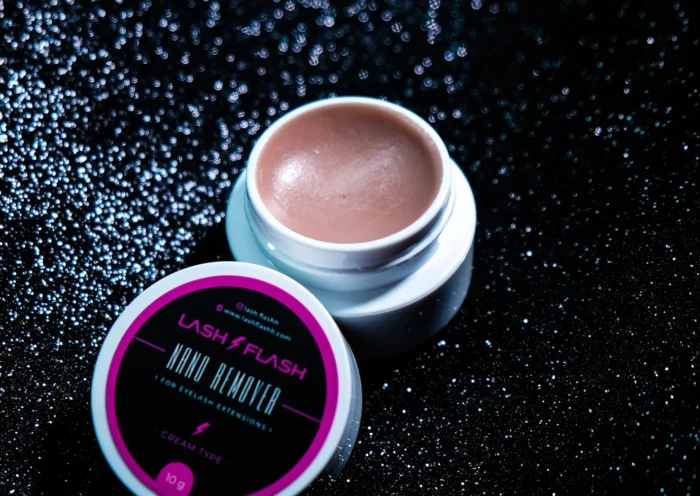Speed up lash application with Lash Flash tools In the competitive world of lash extensions, efficiency is key to success. Lash artists strive to deliver…
What to do when your parenting style affects your friendships
Save articles for later
Add articles to your saved list and come back to them any time.
Earlier this year, I was hanging out with a good friend and our toddlers. Having met through work nearly a decade ago, our friendship has evolved alongside our careers and romantic relationships.
We’ve also had the good fortune to become parents around the same time – something I never thought mattered before having a baby. Having children at a similar time has only deepened our bond. As any mum will tell you, having someone to text late at night when you’re in the throes of sleep deprivation and your baby won’t go down for hours is a godsend.
Becoming a parent can reveal a lot about ourselves and those around us.Credit: iStock
This particular day we were hanging out was very relaxed. We were taking turns to entertain both our children, and at one point, I was playing with hers and an accident happened. Her child ended up hurt and, due to our own histories and experiences with health issues, pregnancy loss and upbringing, our judgement of the severity of the incident was different.
We both reacted accordingly. And as it turns out, our reactions were on opposite sides of the spectrum.
The whole episode left us both confused and hurt. It caused an unexpected rift. Having since had time to consider what happened and our very different responses to the event, I’ve been thinking about parenting styles and the influences that shape us when we become parents.
“We think we know somebody, until we start parenting,” says Jayne Ferguson, a clinician and centre manager at Relationships Australia Victoria. “It’s around that time a lot of our own traumas and behaviours are triggered, and this can affect friendships significantly.”
Why we parent the way we do
Before I had a baby, I thought I knew what kind of parent I’d be. Having practised on my cat (who I still cannot bear to have out of my sight) for years and been held at the mercy of anxiety for two decades, I assumed that my “parenting style” would be intense.
To my (and my partner’s, friends’ and family’s) great surprise, I’m the opposite kind of parent. My almost two-year-old daughter is a tiny scrap of a thing, with a sweet temperament, healthy constitution and a tendency to be cautious.
As a result – knock on wood here – we haven’t yet been faced with emergency hospital runs or any serious health problems, a surprise considering the circumstances of her birth (she was in NICU due to being born in the 1st percentile).
Now, I have wholeheartedly embraced the mantra of laissez faire parenting, perhaps as a direct response to my own kind, but rather strict, upbringing.
The daughter of migrants, I was not allowed to go to sleepovers of friends who weren’t family friends. Despite an unblemished high school record and fairly responsible teenage behaviour, my parents felt uncomfortable sending me to schoolies (just a small house on the Victorian coast with a group of female friends), which I saw as unnecessarily strict and intrusive, especially as I was 18 at the time.
Their strictness has resulted in an unexpected twist: a wholehearted belief that I should not interfere too much in my child’s actions, and to take the rather relaxed approach of “she’ll be right” if something does go wrong. Looking back, this approach was the source of the recent friction between my friend and me.
“We don’t understand our own values and perspectives behind parenting until we’re actually doing it.”
She – who had grown up in similar circumstances to mine – carries the weight of multiple miscarriages, and becomes distressed when she perceives any hurt befalling her child (or any child, really). Having experienced tragedy has primed her to be extra cautious – something I didn’t quite understand until that day.
There’s no ‘right’ way to parent
“It’s really important to recognise there are many different and widely varying parenting styles, and that what you do as a parent depends on what you’ve experienced yourself, what your partner – if there is one – experienced, and what you have rejected in your own life,” says Jayashri Kulkarni, professor of psychiatry at Alfred Health and Monash University.
“Add to that media influences, and the opinions of grandparents, extended family and friends, and it can leave all of us confused.”
As any parent will know, the act of parenting is a minefield, laden with our own childhood experiences, external and internal judgments and reactions to them. Everyone has their own ideas of what constitutes being a good mother or father, and the reasons behind these are complex.
Ferguson says that, besides being one of the most significant changes to happen to us, having children can be that catalyst for behaviour and responses we never imagined in ourselves.
“We don’t understand our own values and perspectives behind parenting until we’re actually doing it. And when we are challenged, we’re drawn to think about where we come from,” she says. “In many ways, we see being a parent as a way of redoing our own childhood. It’s almost like nature gives us a second chance to fix things for our own child.”
These “unspoken concerns”, which we often don’t even know we have, can arise in stressful situations, spilling over and impacting relationships not just with friends but also with family and other loved ones, Kulkrani says.
Getting over parenting differences
The trick to overcoming drastically different responses to child raising is communication, both experts agree.
“As long as lines of communications are kept open, and there’s honest expression without being hurtful, people can get past vastly different parenting approaches,” Kulkarni says.
Ferguson adds: “People get reluctant to talk honestly because they think they’re having a go at their friend, but it’s actually about having an open discussion and being open to self-reflection.”
This type of conflict also calls into question the investment we want to make in our friendships, and whether we are willing to persevere despite the differences.
“The children aren’t going anywhere – maybe it’s time to assess whether this friendship should continue without the children at this stage,” Ferguson says. “It can also be the case that there’s a distance for a period and after that, you come back together.”
As with most complex issues, there is no right answer. Ferguson warns some friendships may never recover, while others will remain changed.
“Intuition about what your child needs is critical, and so is self-reflection about how you parent,” she says. “Parenting is a learning and sharing experience, and it’s important to not assume anything about how other people do things.”
Thankfully, my friend and I have been able to get to a place where we are talking regularly. I wrote this article with her input and permission: it’s not only been part of the process of our recovery, but an issue we both wanted to raise more widely.
After all, our kids aren’t going anywhere – and I don’t think we are, either.
Make the most of your health, relationships, fitness and nutrition with our Live Well newsletter. Get it in your inbox every Monday.
Most Viewed in Lifestyle
From our partners
Source: Read Full Article


